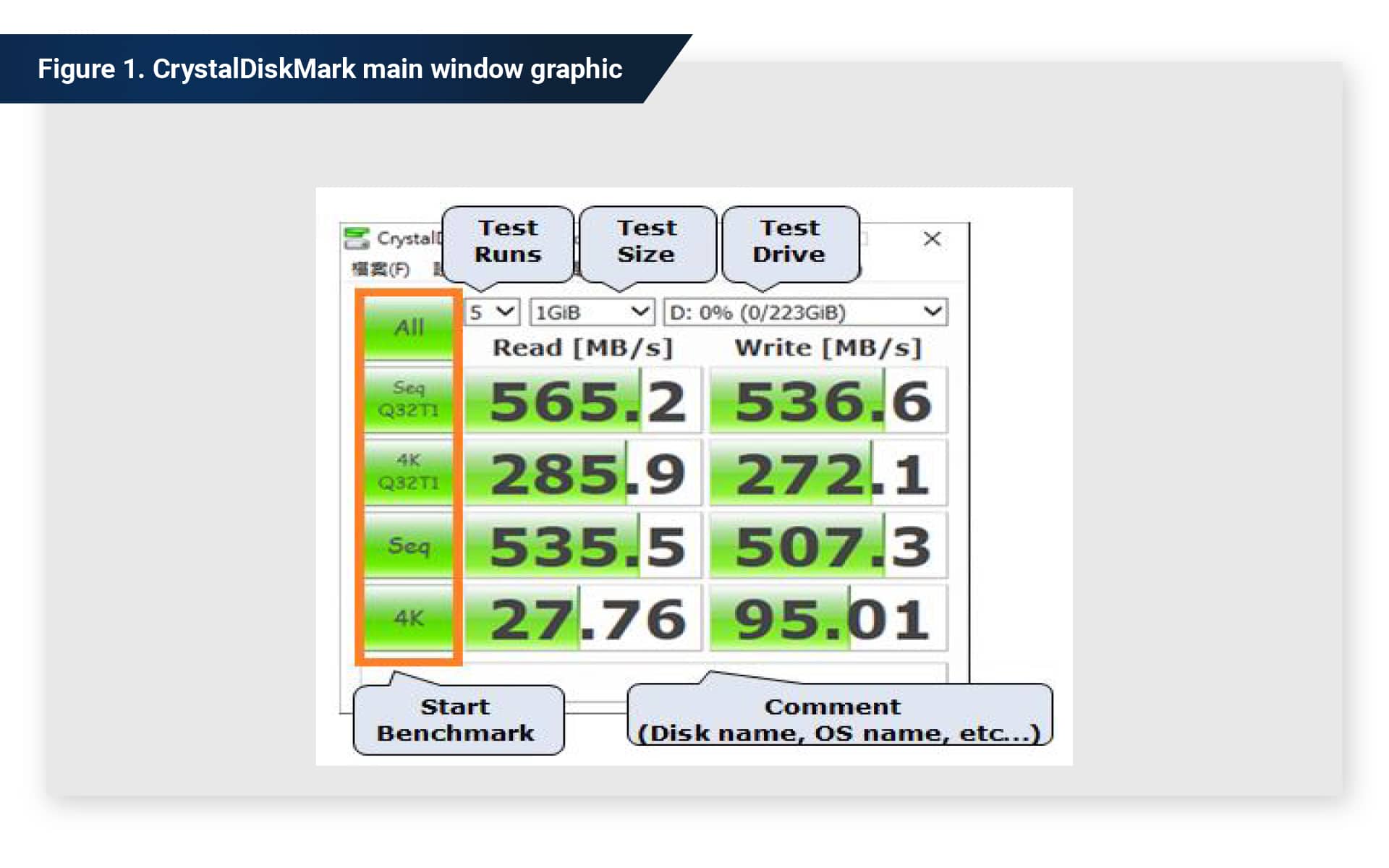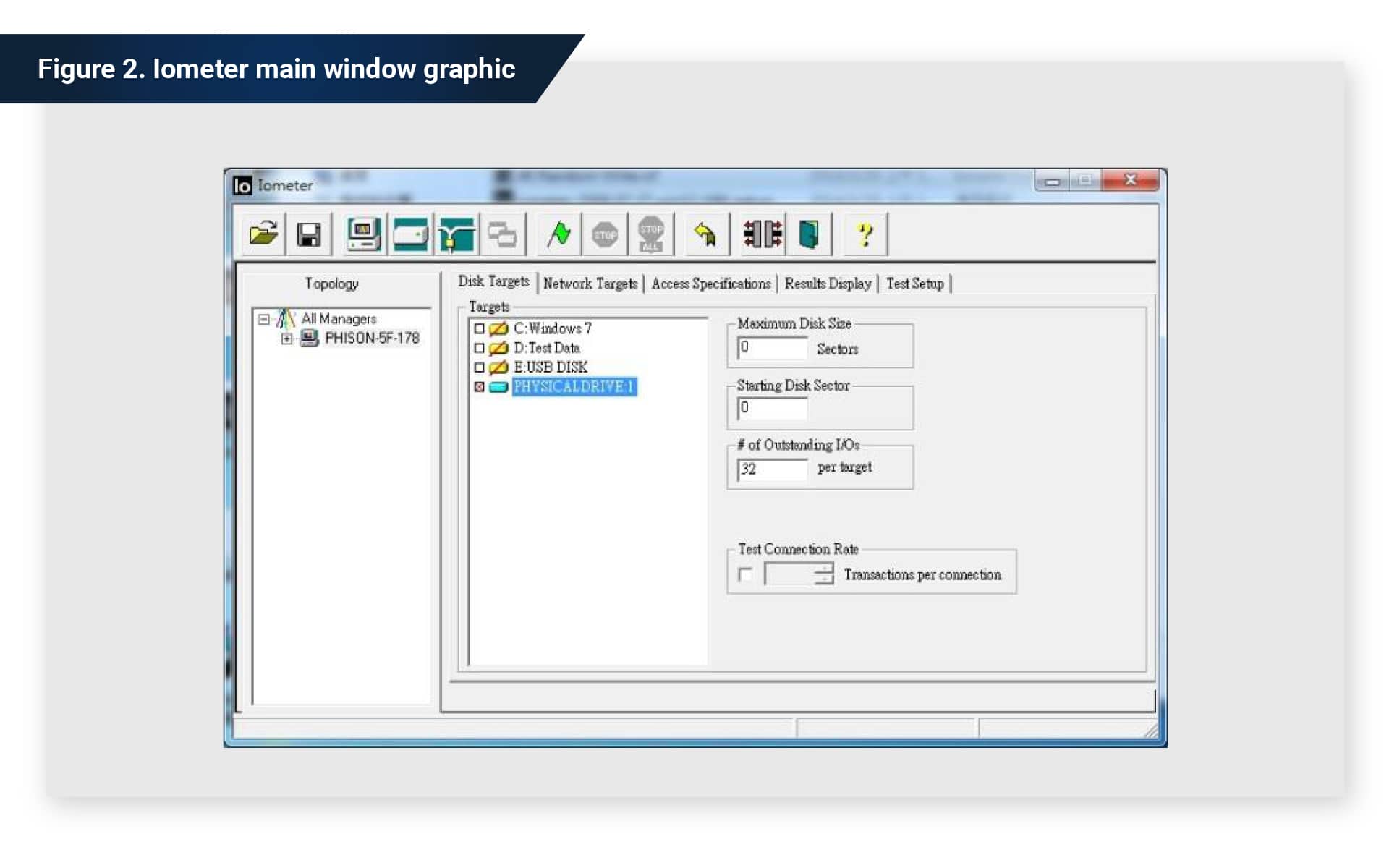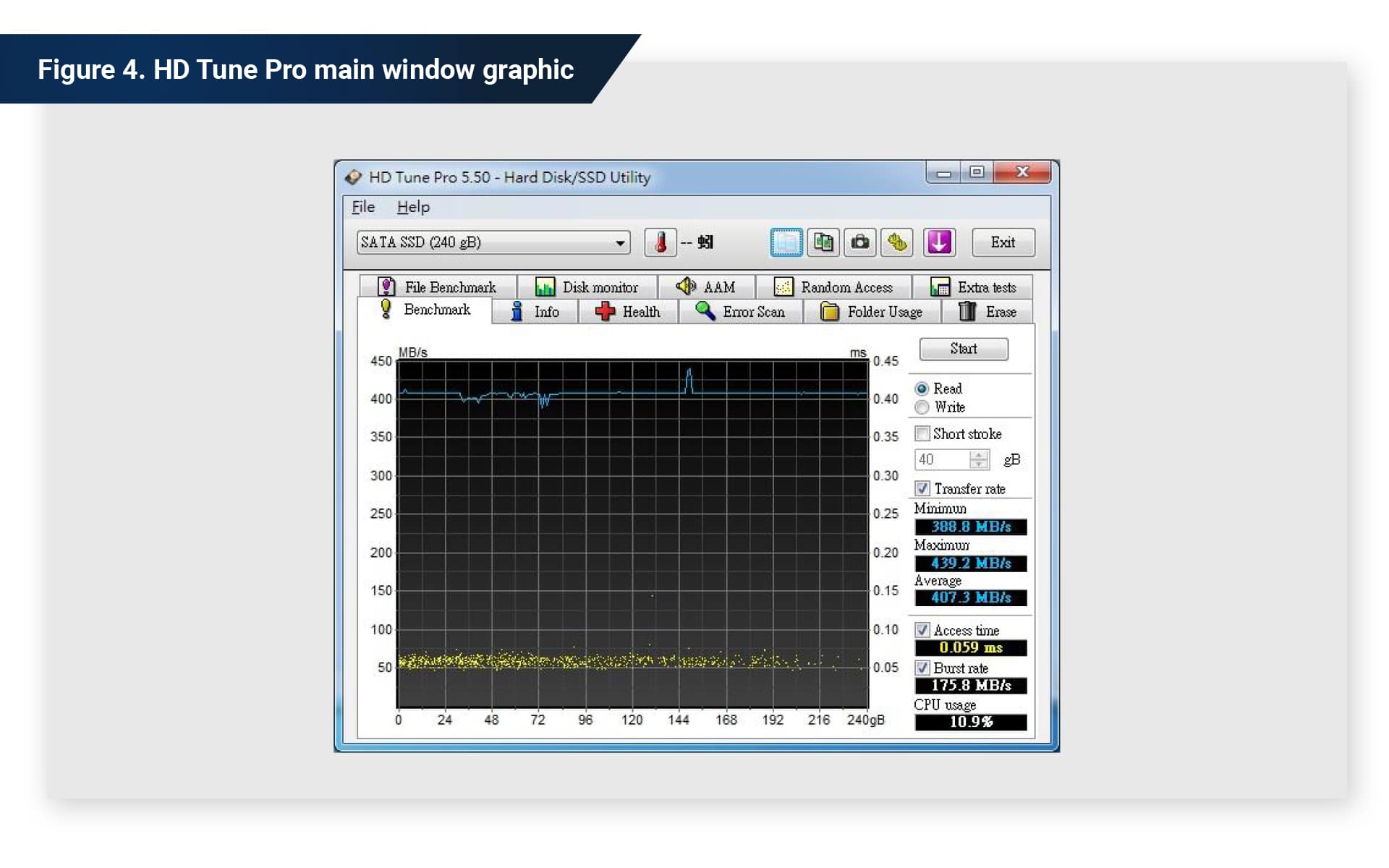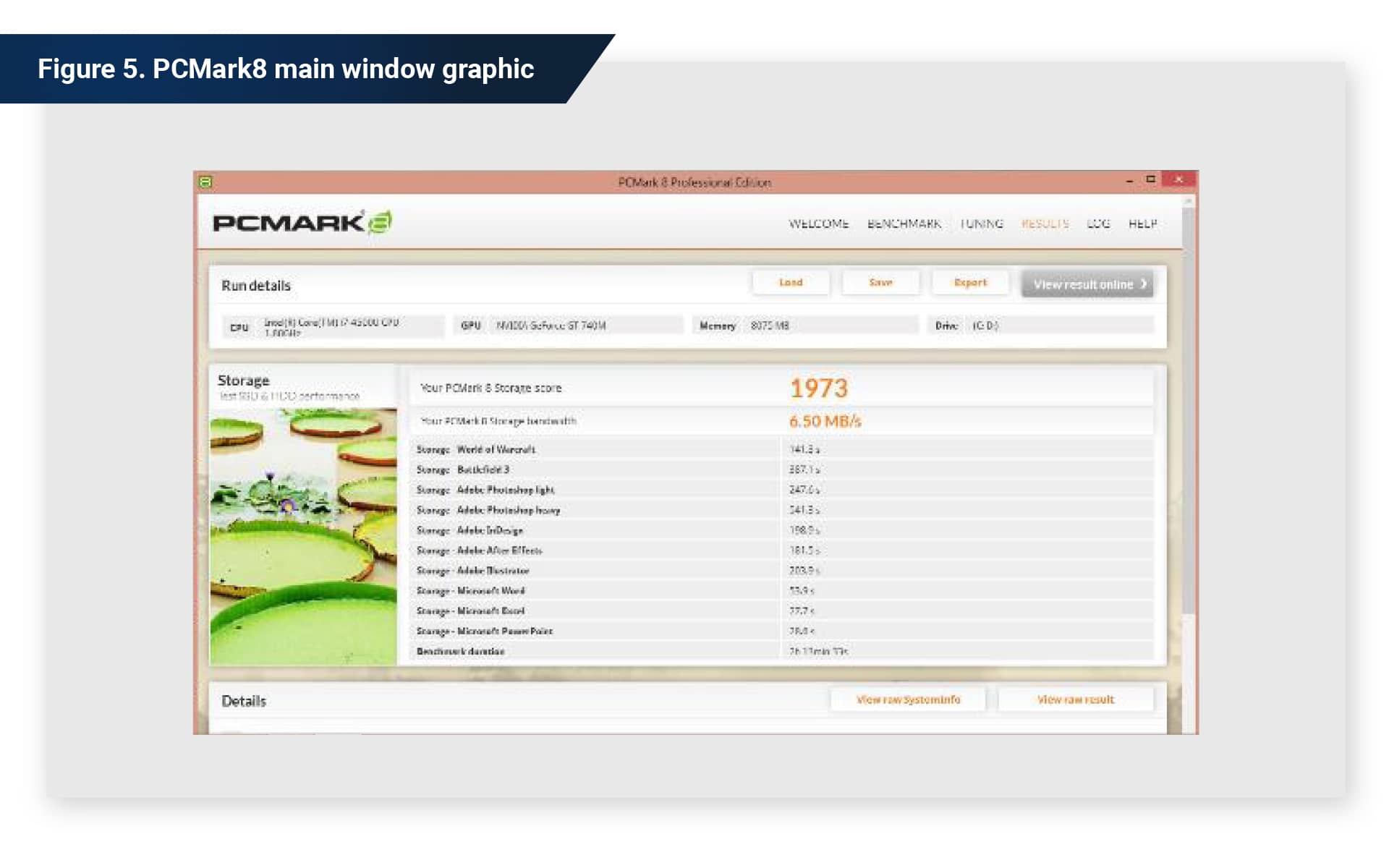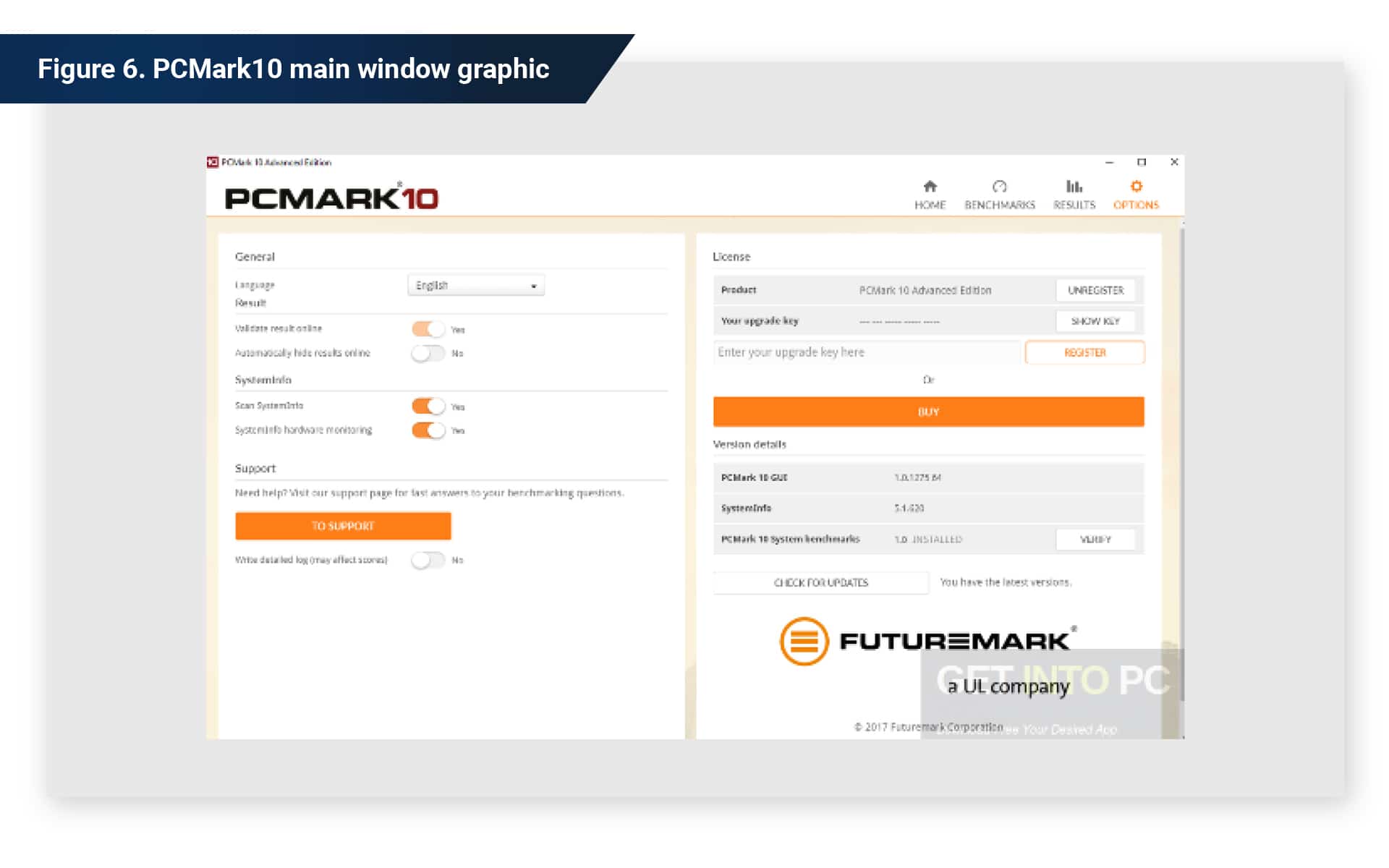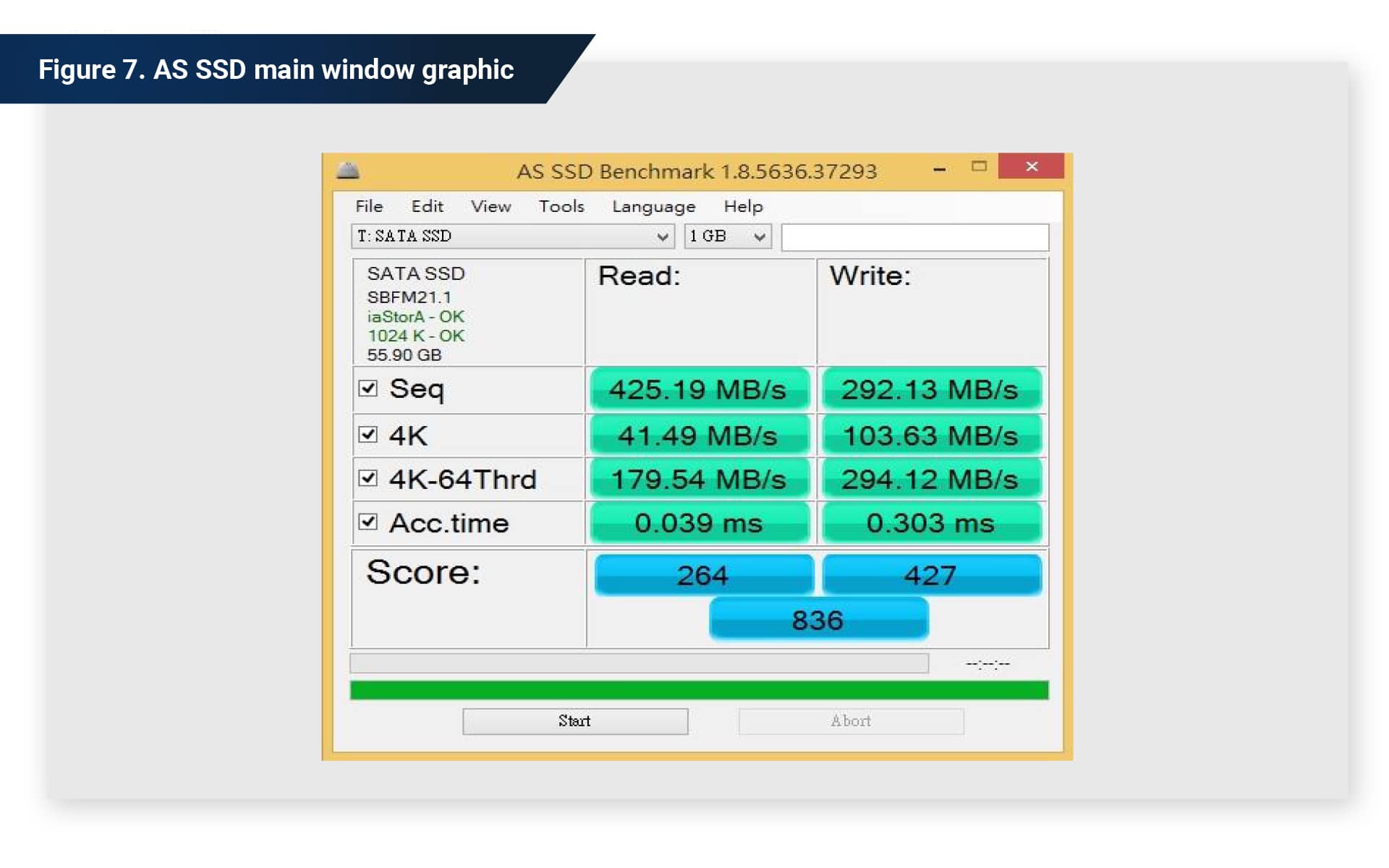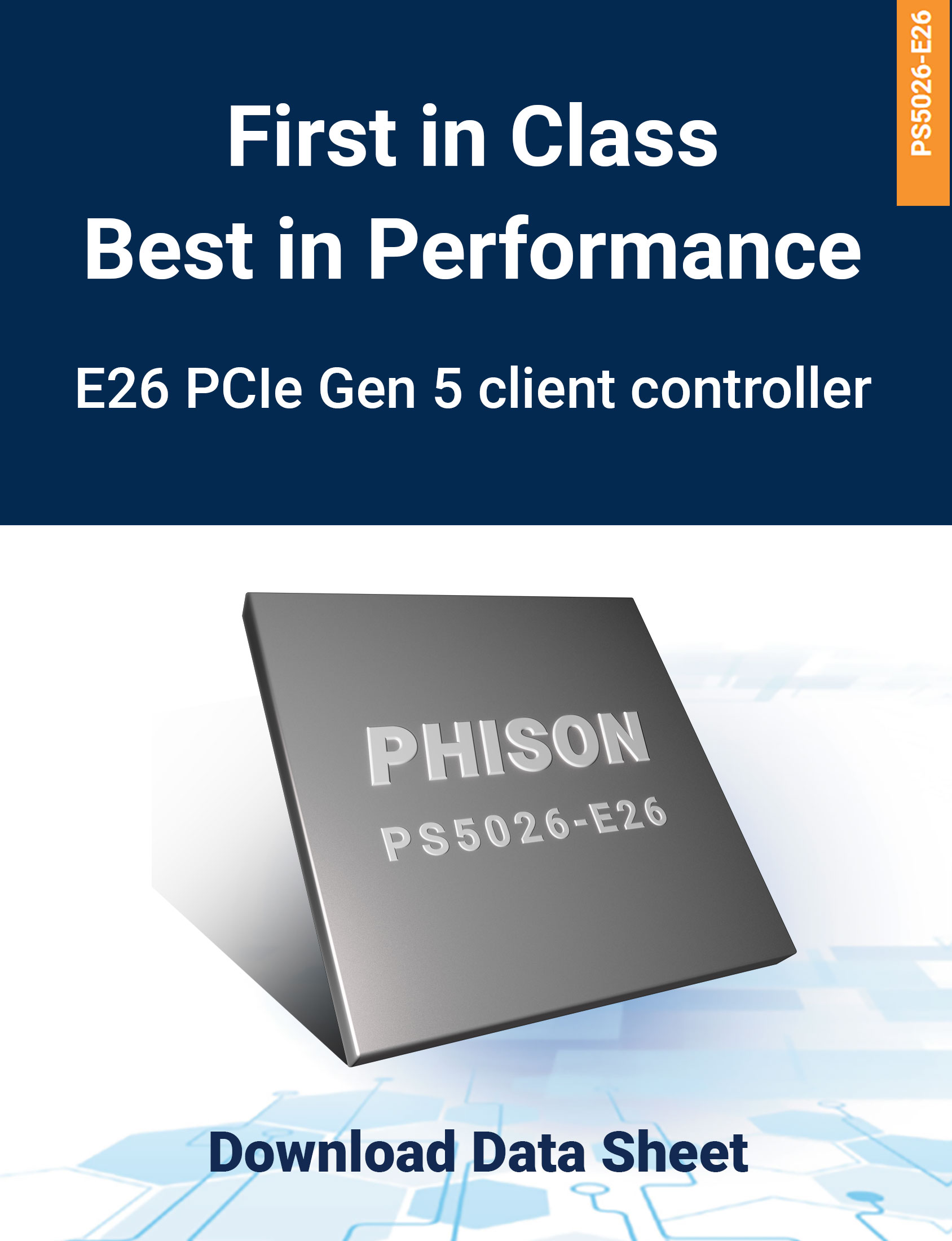Consumers expect a consistent standard of quality and performance from their electronic products, including SSDs. To maintain these standards or exceed them, manufacturers use benchmarking to assess their products’ relative performance.
Benchmarking works by using a unified procedure to compare a product’s test results to another product’s test results or to a widely accepted industry standard.
Benchmarks measure how a change in a design or process affects performance and quality or to ensure a product meets a base performance requirement.
CrystalDiskMark
CrystalDiskMark is a program used to benchmark any type of disk drive, including SSDs. It generates read/write speeds in sequential and random positions with various numbers of queues and threads, allowing testers to benchmark a disk drive’s performance across different read/write scenarios.
It supports sequential read/write tests with a data size of 1024 KB, plus random read/write tests of 512K, 4K, and 4K with a queue depth of 32.
Iometer
Iometer is a professional IO benchmarking suite originally developed by Intel in 1998. It is a highly configurable application able to report IO-related statistics, including random reads/writes, mixed IO performance, typical workstation load, and standard server load.
Iometer is both a measurement tool and a workload generator. It can test and record the performance of its I/O operations and their effects on a disk drive. It simulates the disk or network I/O load of any program or benchmark and generate complete I/O loads.
ATTO
The ATTO Disk Benchmark is a performance measurement tool used to measure the maximum data transfer speed. It can measure a disk drive’s storage performance with various transfer sizes and test lengths for reads and writes.
Several options are available to customize performance measurements, including:
-
- Direct I/O: If this option is checked, file I/O on the test drive runs without system buffering or caching.
- Overlapped I/O: Select this option to perform queued I/O.
- Queue Depth: Specifies the number of queue entries that read/write commands can execute simultaneously.
HD Tune Pro
HD Tune Pro is a hard disk/SSD utility used to measure a drive’s performance, scan for errors, check a drive’s S.M.A.R.T. status, monitor temperature, and even securely erase all data.
HD Tune Pro’s benchmarking uses simple read tests performed across a hard disk surface, beginning from the outside of the drive and moving to the inside. Because an SSD can simultaneously access any part of its memory, a full test of the drive is not required. HD Tune also works with many other storage devices such as memory cards or USB sticks.
PCMark
PCMark is a computer benchmark tool used to test a PC’s performance at both the system and component level. The tests in PCMark represent typical home user workloads. Running PCMark produces a score with higher numbers, indicating better performance.
There are two flavors of PCMark:
PCMark 8 is a Windows system tool, which includes battery life testing and uses third-party applications from Adobe Creative Suite and Microsoft Office.
PCMark 10 is a Windows PC tool with a focus on everyday office tasks. It provides various workloads divided into four groups: essentials, productivity, digital content creation, and gaming.
AS-SSD
AS-SSD is a tool that specializes in benchmarking solid-state drives. The utility is very similar to CrystalDiskMark for both its tests and its output format. The main advantage of AS-SSD is its ability to measure incompressible data transfer speeds.
There are four testing types available with AS-SSD:
• Seq: Read/write a 1 GB file
• 4K: Read/write performance in random 4K data
• 4K-64 Thrd: Read/write operations are spread across 64 threads (Queue depth = 64)
• Acc.time: Access time of SSD
Why Phison uses benchmarking tools
It’s not unreasonable for a consumer to expect that every piece of hardware they buy meets the same level of performance and quality as any other piece of hardware. Worse still, lack of quality and performance in storage solutions such as SSDs can lead to loss of data and loss of business. That’s why Phison considers benchmarking an essential tool for testing the performance of hardware products.
Although mainly used for computer processors, benchmarking is now widely used for other hardware products, including hard drives and SSDs. Phison uses a wide range of benchmarking tools to ensure every device we manufacture meets our customer’s expectations for quality and performance. This commitment to quality development is why Phison continues to be a trusted manufacturer of SSDs and an industry leader.

